
Mbini: The Gem of Equatorial Guinea
Mbini, nestled along the scenic coast of Equatorial Guinea, offers a perfect blend of natural beauty and rich cultural heritage. This hidden gem is renowned for its pristine beaches, lush rainforests, and vibrant local markets that paint a vivid picture of African life. Visitors can bask in the warm sun on the golden sands, explore the dense jungles teeming with wildlife, or immerse themselves in the local traditions that have been preserved for generations. The town's strategic location by the Benito River makes it a prime spot for water activities. Fishing enthusiasts will find the river's rich aquatic life a delight, while those looking for a tranquil experience can enjoy a peaceful boat ride. The surrounding rainforests are a haven for eco-tourists, offering a chance to see rare plant and animal species in their natural habitats. Mbini's local cuisine is a treat for food lovers. The town's markets are brimming with fresh seafood, tropical fruits, and traditional dishes that are a feast for the senses. Friendly locals are always eager to share stories and guide visitors through the town's historical sites, including colonial-era buildings and ancient tribal artifacts. Whether you're seeking adventure, relaxation, or cultural enrichment, Mbini promises an unforgettable experience.
Local tips in Mbini
- Bring insect repellent to protect against mosquitoes, especially if you plan to explore the rainforests.
- Hire a local guide for a more enriching experience when exploring the town and its surroundings.
- Visit the local markets early in the morning for the freshest produce and seafood.
- Respect local customs and traditions, and always ask for permission before taking photos of people.
- Check the local weather forecast and plan outdoor activities accordingly, as the region can experience sudden rainfall.
Mbini: The Gem of Equatorial Guinea
Mbini, nestled along the scenic coast of Equatorial Guinea, offers a perfect blend of natural beauty and rich cultural heritage. This hidden gem is renowned for its pristine beaches, lush rainforests, and vibrant local markets that paint a vivid picture of African life. Visitors can bask in the warm sun on the golden sands, explore the dense jungles teeming with wildlife, or immerse themselves in the local traditions that have been preserved for generations. The town's strategic location by the Benito River makes it a prime spot for water activities. Fishing enthusiasts will find the river's rich aquatic life a delight, while those looking for a tranquil experience can enjoy a peaceful boat ride. The surrounding rainforests are a haven for eco-tourists, offering a chance to see rare plant and animal species in their natural habitats. Mbini's local cuisine is a treat for food lovers. The town's markets are brimming with fresh seafood, tropical fruits, and traditional dishes that are a feast for the senses. Friendly locals are always eager to share stories and guide visitors through the town's historical sites, including colonial-era buildings and ancient tribal artifacts. Whether you're seeking adventure, relaxation, or cultural enrichment, Mbini promises an unforgettable experience.
When is the best time to go to Mbini?
Iconic landmarks you can’t miss
Résidence Hotelière Dounia Park Eco Lodge
Experience the harmony of nature and comfort at Résidence Hotelière Dounia Park Eco Lodge in Libreville, Gabon.
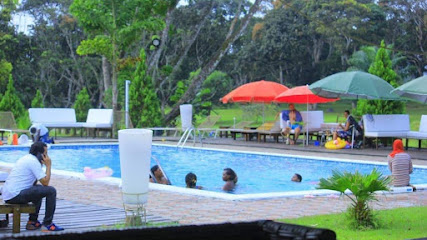
ibis Malabo
Discover comfort at ibis Malabo, your gateway to the stunning Isla De Bioko and the vibrant culture of Equatorial Guinea.

St. Elizabeth’s Cathedral
Discover the architectural beauty and cultural significance of St. Elizabeth's Cathedral, a must-visit landmark in Malabo, Equatorial Guinea.
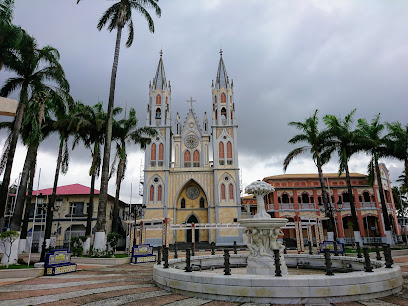
Rumbo Malabo
Discover Bioko Island's hidden treasures with Rumbo Malabo, the premier travel agency for unforgettable adventures in Equatorial Guinea.
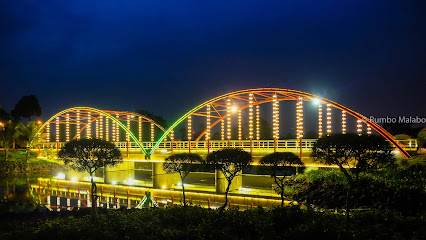
Torre de la Libertad
Experience the vibrant culinary and nightlife scene at Torre de la Libertad in Bata, Equatorial Guinea, where local flavors meet lively entertainment.
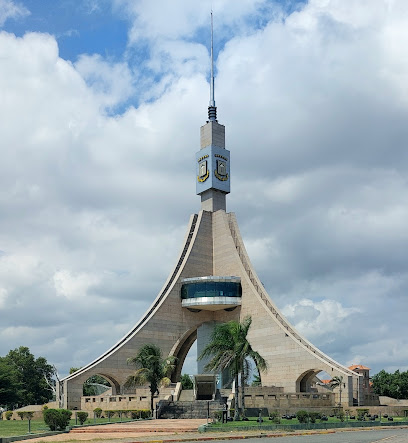
Parque Nacional del Monte Alén
Discover the lush landscapes and vibrant wildlife of Parque Nacional del Monte Alén, a must-visit national park in Equatorial Guinea for every nature enthusiast.
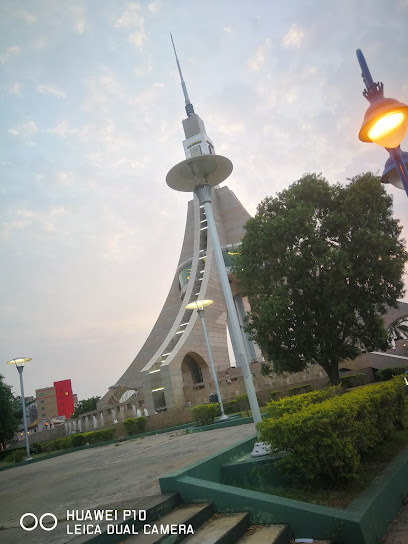
Corisco
Discover the serene beauty of Corisco Island, Equatorial Guinea, where pristine beaches meet rich cultural experiences for an unforgettable getaway.
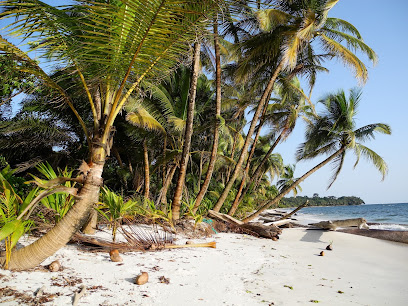
Finca Sampaka
Discover Finca Sampaka in Malabo, a harmonious blend of corporate productivity and serene natural beauty, perfect for business travelers and tourists alike.
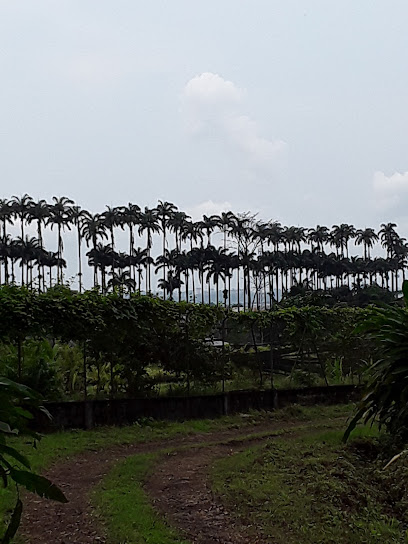
Benito River
Experience the tranquil beauty of Benito River in Equatorial Guinea, a hidden gem perfect for nature lovers and adventure seekers alike.
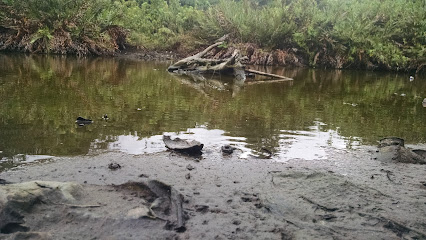
Sous les cocotiers
Experience authentic Gabonese cuisine amidst tropical beauty at Sous les Cocotiers in Akanda, Gabon, a culinary gem for every traveler.
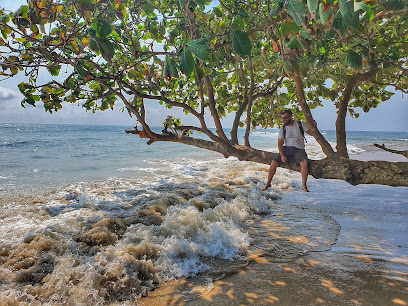
Little Elobey
Discover the untouched beauty of Little Elobey Island, a serene escape in Equatorial Guinea with pristine beaches and rich biodiversity.

Elobey Grande
Explore Elobey Grande, a serene island in Equatorial Guinea, where pristine beaches meet vibrant local culture and stunning natural landscapes.
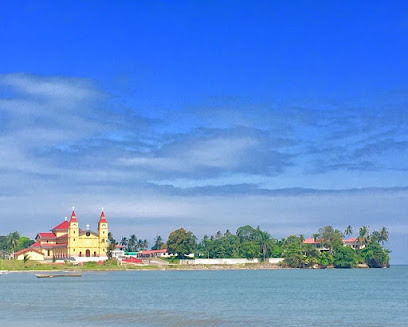
Reserva Natural de Río Campo
Discover the hidden gem of Equatorial Guinea at Reserva Natural de Río Campo, a nature preserve showcasing stunning landscapes and vibrant wildlife.

Mbanié
Explore the breathtaking beauty and cultural richness of Mbanié Island, a tranquil paradise for nature lovers and adventure seekers.

Iglesia de San Fernando
Discover the captivating beauty and rich history of Iglesia de San Fernando in Malabo, a must-visit Catholic church and cultural landmark.

Unmissable attractions to see
Parque Nacional del Monte Alén
Discover the breathtaking beauty and diverse wildlife of Parque Nacional del Monte Alén, a premier national park in Equatorial Guinea for nature lovers and adventurers.
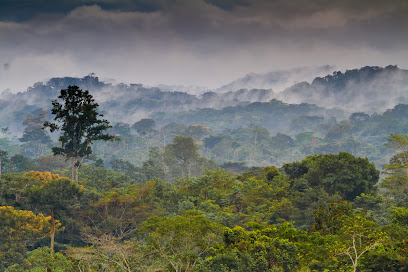
Corisco
Experience the serene beauty and vibrant culture of Corisco Island, a hidden paradise in Equatorial Guinea perfect for nature lovers and adventure seekers.
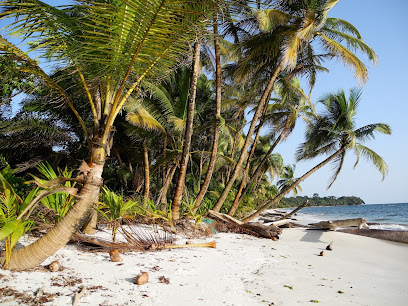
Conservation Parc Nacional de Campo-Ma‘an (WWF)
Explore the diverse ecosystems and rich wildlife of Campo-Ma'an National Park, a true gem for nature lovers in Cameroon.
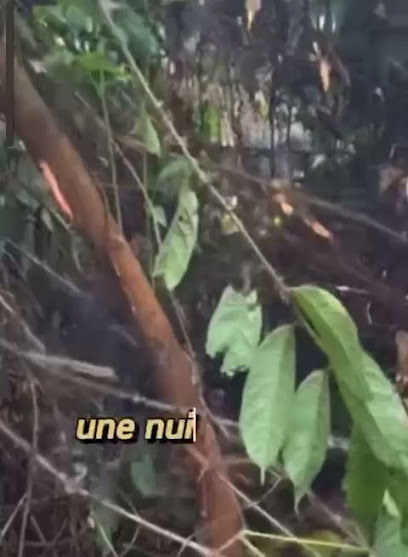
Little Elobey
Experience the untouched beauty and tranquility of Little Elobey, an idyllic island paradise in Equatorial Guinea, perfect for nature lovers and adventurers.

Elobey Grande
Explore Elobey Grande, an unspoiled island paradise in Equatorial Guinea, rich in biodiversity, culture, and breathtaking natural beauty.
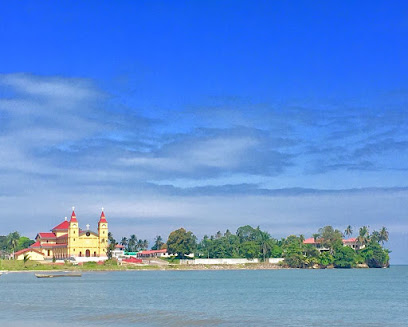
Chutes de Memve'ele
Experience the breathtaking beauty of Chutes de Memve'ele, a stunning waterfall and hiking area in Cameroon, perfect for outdoor enthusiasts and nature lovers.
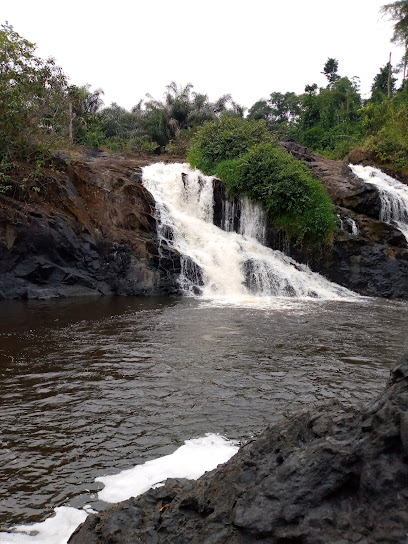
Campo-Beach, Cameroun
Experience the natural beauty and tranquility of Campo Beach, a serene destination on the coast of Cameroon perfect for relaxation and exploration.
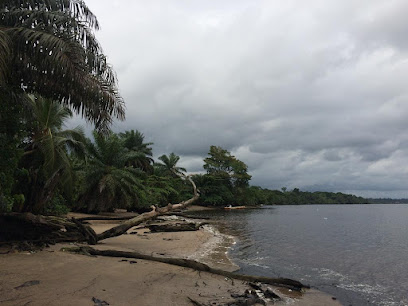
Plage de Bouandjo, Campo
Experience the serene beauty of Plage de Bouandjo in Campo, Cameroon – a tranquil retreat with stunning views and unspoiled nature.

Reserva Natural de Río Campo
Explore the breathtaking landscapes and diverse wildlife at Reserva Natural de Río Campo, Equatorial Guinea's stunning nature preserve.

Mwadib'a Vilonje (Rivière)
Explore Mwadib'a Vilonje River in Campo, Cameroon - a serene retreat for nature lovers and adventure seekers amidst lush landscapes and vibrant wildlife.

Plage publique d'Ényènguè na Manga II.
Experience the tranquil beauty of Ényènguè Beach in Campo, Cameroon, where golden sands meet vibrant local culture and stunning coastal views.

EDIBA A NTANDE (RIVIÈRE NTANDE)
Explore the captivating beauty of EDIBA A NTANDE in Campo, Cameroon, where nature and culture intertwine for a unique travel experience.

MBONDO, CAMPO
Experience the natural beauty and vibrant culture of Mbondo, Campo, a hidden gem in Cameroon that promises adventure and authenticity.

Bordure de Mer
Explore the breathtaking coastal beauty of Bordure de Mer in Campo, Cameroon, where tranquility meets adventure in a tropical paradise.

BWANJO BWA EDIBA
Discover the enchanting Bwanjo Bwa Ediba, a hidden gem in Campo, Cameroon, rich in culture and natural beauty, perfect for adventurous travelers.

Essential places to dine
La Luna
Experience fine dining at La Luna in Malabo – where exquisite cuisine meets elegant ambiance for an unforgettable culinary journey.
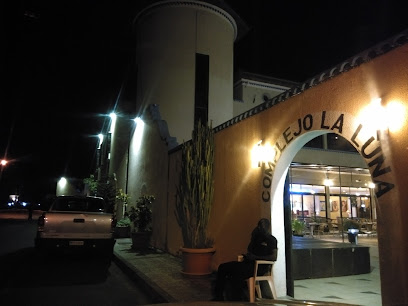
La Ferme Beach
Discover La Ferme Beach in Bata: A stunning coastal paradise with vibrant culture and delectable dining experiences.
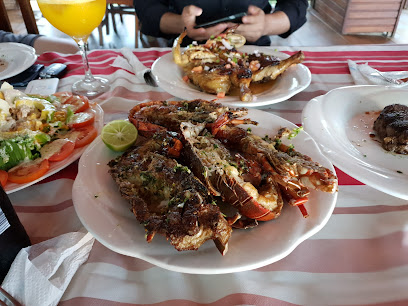
Bidji Binia
Experience mouthwatering pizzas in Malabo at Bidji Binia—where authentic flavors meet a warm atmosphere.
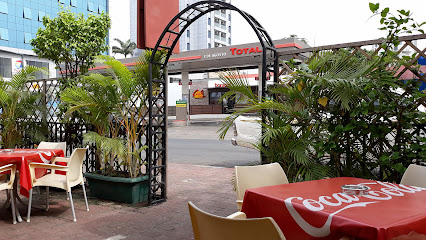
L'Atelier
Discover culinary excellence at L'Atelier in Malabo – where local flavors meet international cuisine for an unforgettable dining experience.
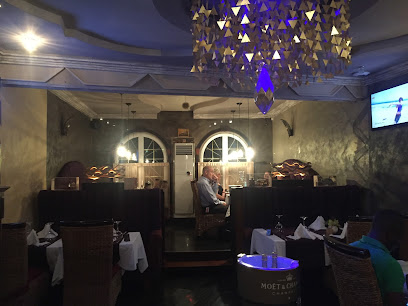
Torre de la Libertad
Discover Torre de la Libertad: A dynamic restaurant and disco club offering exquisite cuisine and vibrant nightlife along Bata's stunning waterfront.
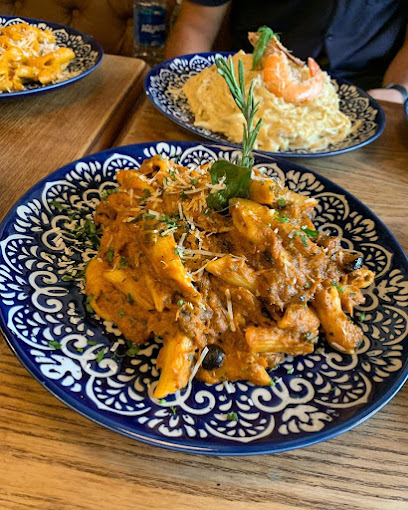
Casa Marcial
Experience the vibrant flavors of Equatorial Guinea at Casa Marcial – where local cuisine meets international flair in a charming setting.
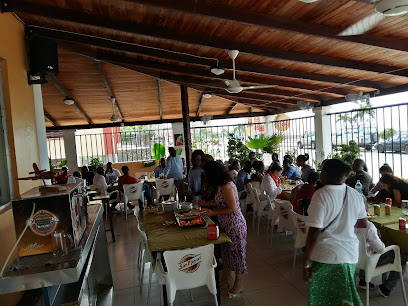
Restaurante Suites del Mar
Discover exquisite seafood delicacies at Restaurante Suites del Mar in Bata - where every dish tells a story of Equatorial Guinea's coastal heritage.
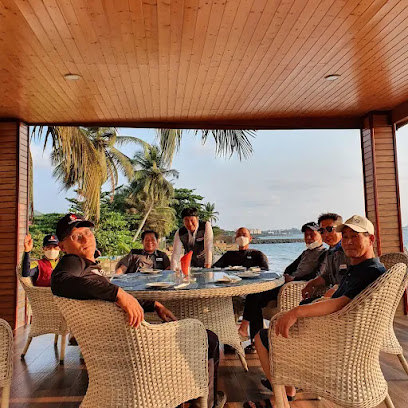
Restaurante Imagine
Experience authentic Equatorial Guinean cuisine at Restaurante Imagine in Malabo - a delightful blend of local flavors and global dishes.
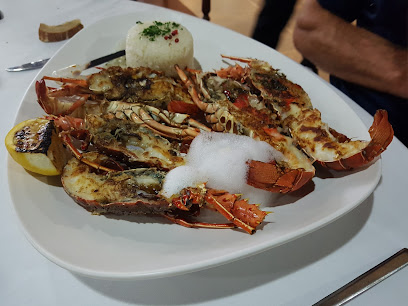
TamTam Restaurant & Pastry
Experience exquisite dining at TamTam Restaurant & Pastry in Bata - where local flavors meet culinary excellence.
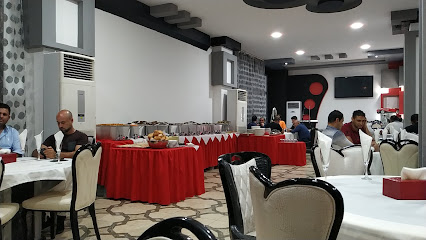
El Rancho Restaurant
Experience the rich flavors of Equatorial Guinea at El Rancho Restaurant in Malabo - where tradition meets taste.
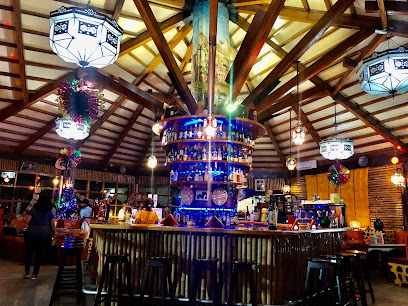
Restaurante Carmen Le Boukarou
Discover the authentic taste of Equatorial Guinea at Restaurante Carmen Le Boukarou in Bata - where local flavors meet warm hospitality.
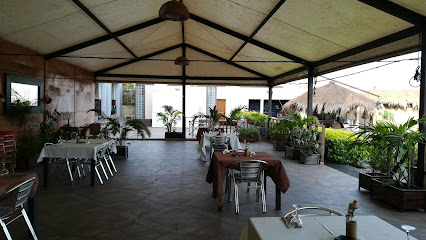
Restaurante Espigón
Experience the vibrant flavors of Equatorial Guinea at Restaurante Espigón – a culinary haven in Bata offering delightful dishes and warm hospitality.
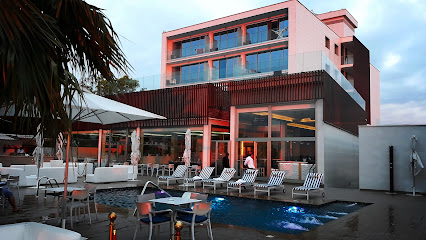
Restaurante Beirut
Discover the essence of Lebanese cuisine at Restaurante Beirut in Bata, Equatorial Guinea—where every meal is a celebration of flavor.
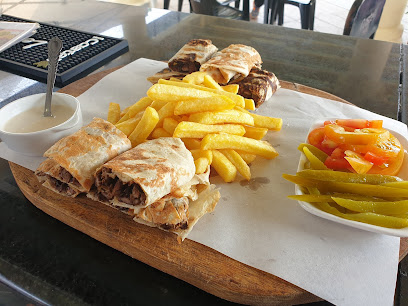
Restaurant Casablanca
Discover authentic Equatorial Guinean flavors at Restaurant Casablanca in Bata – a culinary haven for travelers.
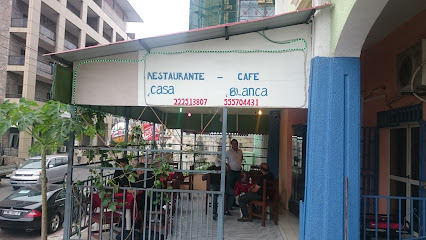
Restaurante Miramar
Experience exquisite seafood dining at Restaurante Miramar in Bata – where fresh flavors meet coastal charm.
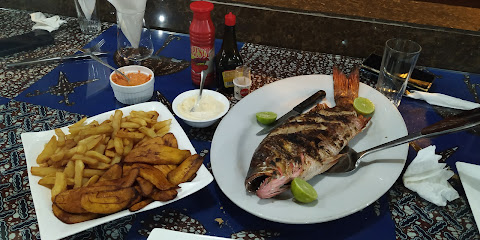
Markets, malls and hidden boutiques
Supermercado Martínez Hermanos (Bata)
Explore local and international flavors at Supermercado Martínez Hermanos in Bata, a vibrant shopping experience in Equatorial Guinea.
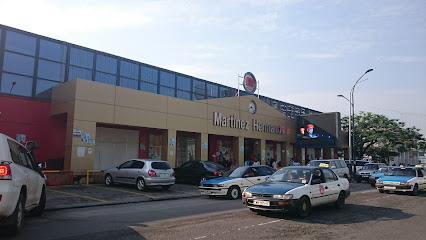
SEMU Mercado
Explore SEMU Mercado in Malabo, a vibrant market showcasing local produce, crafts, and the rich culture of Equatorial Guinea.
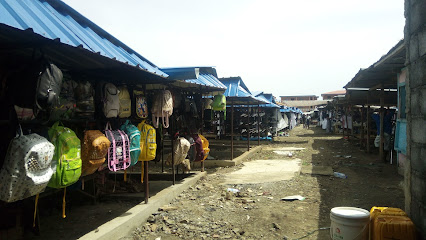
Centro Comercial EGTC
Explore Centro Comercial EGTC in Bata for a vibrant shopping experience with local crafts, international brands, and delightful dining options.
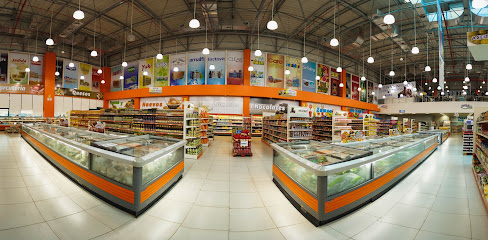
Edificio Candy Vistamar
Discover the vibrant shopping scene at Edificio Candy Vistamar, Bata's premier destination for fashion, food, and fun.
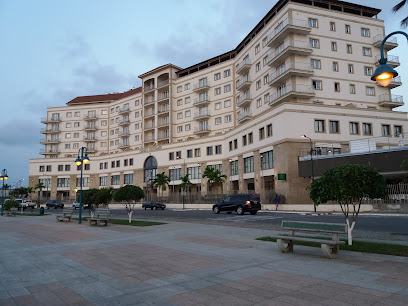
Gran Mercado Central
Explore Gran Mercado Central, a vibrant shopping mall in Bata, where local culture, delicious food, and unique crafts await every visitor.
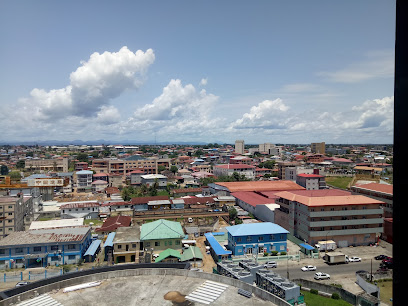
Mercado de Mondoasi
Explore the vibrant Mercado de Mondoasi in Bata, a shopping mall rich in local culture, fresh produce, and unique handicrafts.
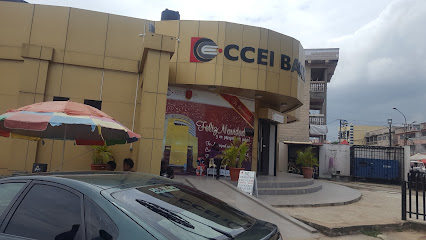
Shopping Electrónico
Explore the latest in technology at Shopping Electrónico, Bata’s premier destination for electronics and gadgets.
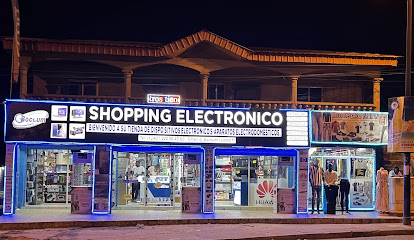
Supermercado Muankaban
Explore fresh produce and local delicacies at Supermercado Muankaban in Bata, Equatorial Guinea, a vibrant supermarket experience.
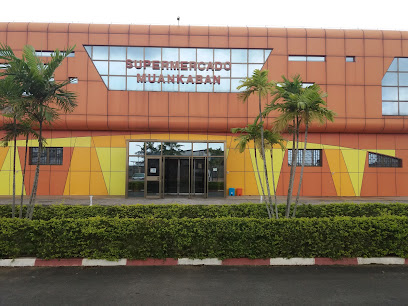
Lea Nfefe Esala
Discover local flavors and essentials at Lea Nfefe Esala, your go-to convenience store in Bata, Equatorial Guinea.
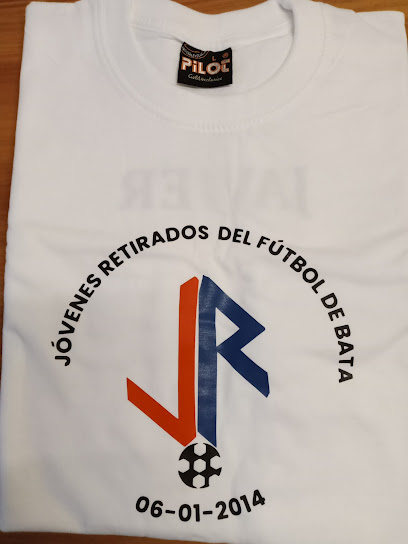
Oumar.Nema Star ďAfrique Envinayong
Discover local culture at Oumar.Nema Star d'Afrique, Evinayong's premier convenience store for tourists seeking authentic experiences.
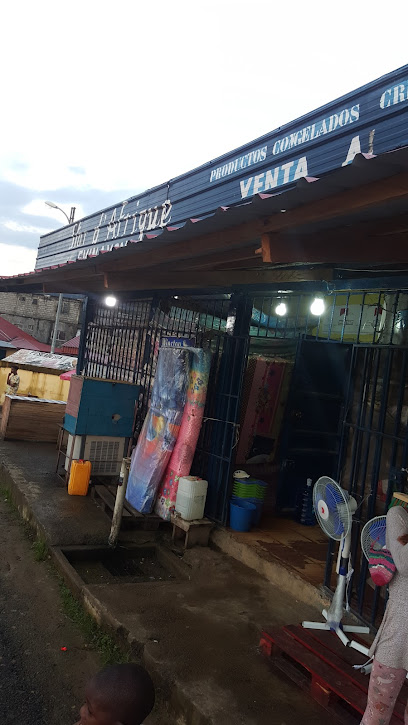
Supermercado Los Hermanos
Experience the local flavors and vibrant shopping atmosphere at Supermercado Los Hermanos in Evinayong, Equatorial Guinea.
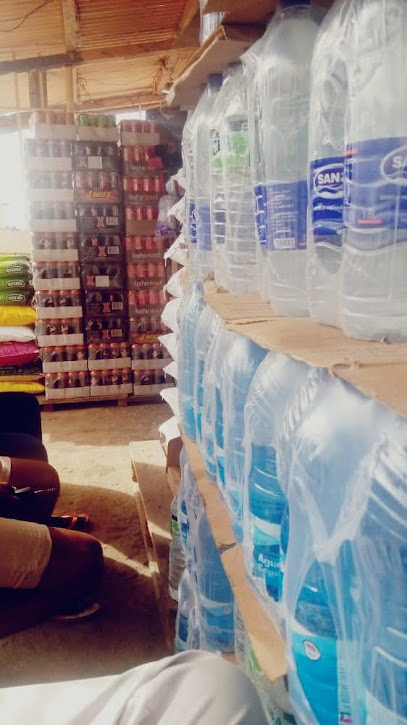
Golden Paints
Explore Golden Paints in Bata, Equatorial Guinea—a vibrant shopping destination blending local culture and modern retail experiences.
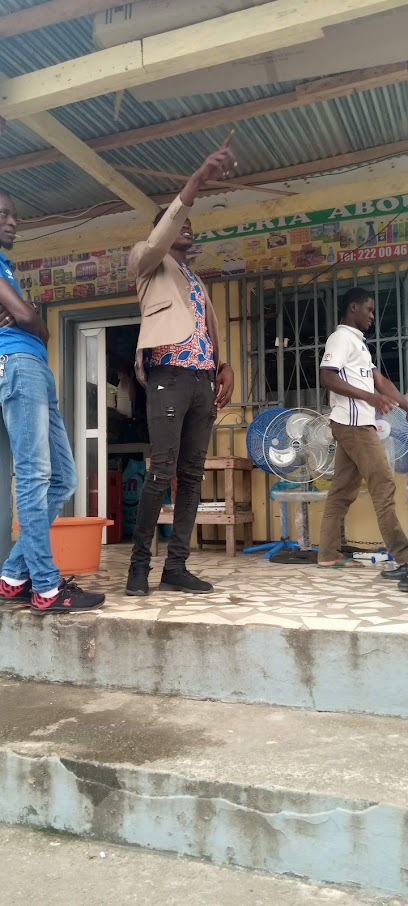
Pastelería Delicias
Discover the delectable world of pastries at Pastelería Delicias, a cake shop in Bata, Equatorial Guinea, offering an authentic taste of local flavors.

ikunde primero
Explore Ikunde Primero in Bata for unique home goods and local crafts that capture the essence of Equatorial Guinea's vibrant culture.

Panadería Muankaban
Discover the rich flavors of traditional baking at Panadería Muankaban, a delightful bakery in Bata, Equatorial Guinea, renowned for its fresh bread and pastries.
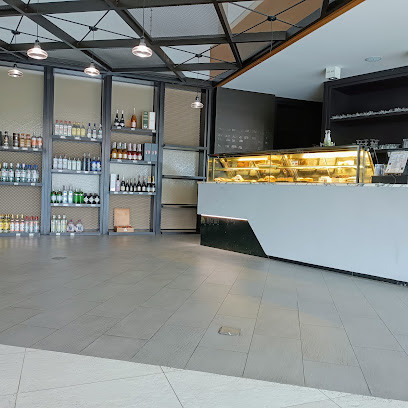
Essential bars & hidden hideouts
Casa Marcial
Discover authentic Equatorial Guinean cuisine at Casa Marcial, a must-visit restaurant in Bata with stunning waterfront views and delectable dishes.
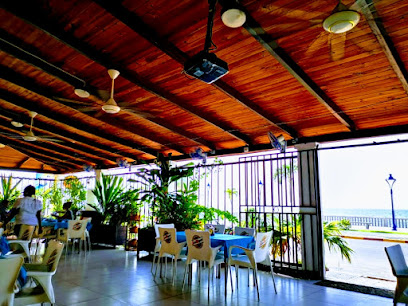
IMANI LOUNGE MALABO
Discover the vibrant atmosphere of Imani Lounge Malabo, where local flavors meet international cuisine in a stylish setting.
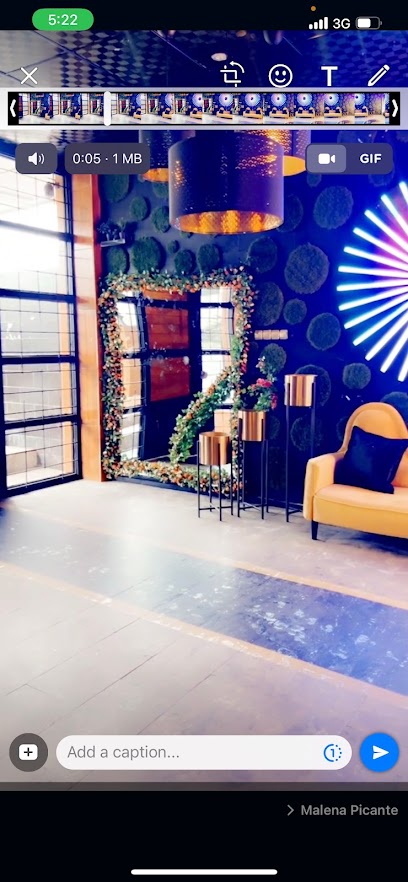
OHANA, Bistro & Bar
Discover the flavors of Equatorial Guinea at OHANA, Bistro & Bar - a unique gastropub experience in the heart of Bata.
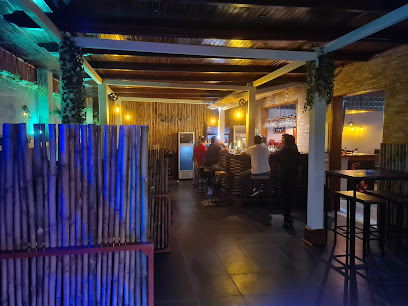
Monkey and Chill Lounge
Discover the vibrant atmosphere of Monkey and Chill Lounge in Bata, Equatorial Guinea, the ultimate hookah bar destination for relaxation and socializing.

Los Naipes
Discover the lively atmosphere and diverse drink selection at Los Naipes, a must-visit bar in Bata, Equatorial Guinea, perfect for unwinding and socializing.
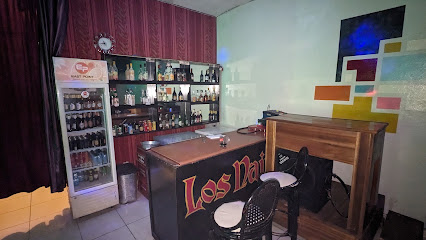
The Panopticon
Experience the vibrant flavors of Latin America at The Panopticon in Niefang, a culinary gem that delights every palate with its exquisite Pan-Latin dishes.

terraza Oscaro long bar
Discover authentic Spanish tapas at Terraza Oscaro Long Bar in Bata, Equatorial Guinea, where vibrant flavors and a lively atmosphere await.
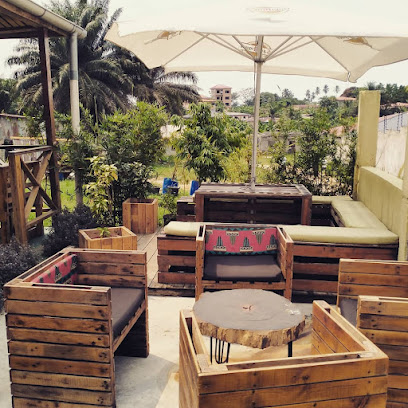
Bar Óscar F.
Discover the lively nightlife and local culture at Bar Óscar F. in Bata, Equatorial Guinea, where every drink tells a story.

Sky Lounge Bata
Experience the chic vibe of Sky Lounge Bata, where relaxation meets the vibrant spirit of Equatorial Guinea in a perfect social setting.
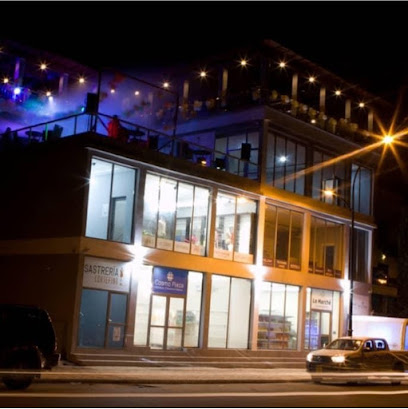
Bar Joaquina
Discover the vibrant atmosphere of Bar Joaquina in Machinda, where local flavors and friendly ambiance create unforgettable evenings.

Terraza Complejo Bome
Experience the rich flavors of Equatorial Guinea at Terraza Complejo Bome, a premier grill restaurant in Bata, where every dish tells a story.

Bar Margarita
Experience the vibrant atmosphere and local flavors at Bar Margarita in Evinayong, a must-visit bar for tourists craving authentic Equatorial Guinean culture.

Kristal Pub - Restaurant - Lounge
Discover the vibrant nightlife at Kristal Pub in Bata, where locals and tourists mingle over drinks in a lively atmosphere.

Bar Carmen Nchama
Discover the heart of Evinayong at Bar Carmen Nchama, where local culture and vibrant conversations come together in a cozy setting.

Capitol Lounge
Experience the vibrant nightlife of Bata at Capitol Lounge, where local flavors and friendly vibes await every visitor.
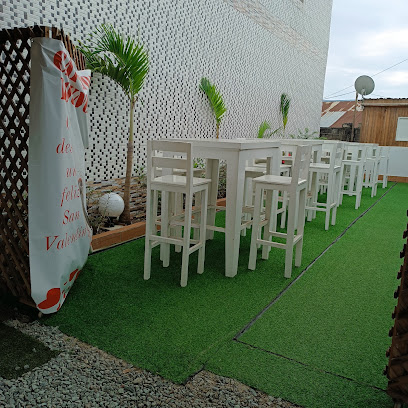
Local Phrases
-
- HelloMbolo
[m-bo-lo] - GoodbyeEseka
[e-se-ka] - YesEe
[e] - NoAa
[a] - Please/You're welcomeMba'e
[m-ba-e] - Thank youMboti
[m-bo-ti] - Excuse me/SorryMba'e
[m-ba-e] - How are you?Yaa mbote?
[ya m-bo-te?] - Fine. And you?Mbote. Nnee?
[m-bo-te. n-ne?] - Do you speak English?Mba va avele inglés?
[m-ba va a-ve-le in-gles?] - I don't understandAa nne avo
[a n-ne a-vo]
- HelloMbolo
-
- I'd like to see the menu, pleaseNne ve a'vome menu, mba'e
[n-ne ve a-vo-me me-nu, m-ba-e] - I don't eat meatAa nne avele ntege
[a n-ne a-ve-le n-te-ge] - Cheers!Elee!
[e-le] - I would like to pay, pleaseNne ve a'vome ngene, mba'e
[n-ne ve a-vo-me n-ge-ne, m-ba-e]
- I'd like to see the menu, pleaseNne ve a'vome menu, mba'e
-
- Help!Aka!
[a-ka!] - Go away!Hagale!
[ha-ga-le!] - Call the Police!Va a'kone polisia!
[va a-ko-ne po-li-si-a!] - Call a doctor!Va a'kone dokita!
[va a-ko-ne do-ki-ta!] - I'm lostAa nne ane
[a n-ne a-ne] - I'm illAa nne a'vome
[a n-ne a-vo-me]
- Help!Aka!
-
- I'd like to buy...Nne ve a'vome...
[n-ne ve a-vo-me...] - I'm just lookingNne ve ame alele
[n-ne ve a-me a-le-le] - How much is it?Yaa nne aneku?
[ya n-ne a-ne-ku?] - That's too expensiveMpo nne ntege
[m-po n-ne n-te-ge] - Can you lower the price?Mba va amaga ntege?
[m-ba va a-ma-ga n-te-ge?]
- I'd like to buy...Nne ve a'vome...
-
- What time is it?Yaa nne aneku?
[ya n-ne a-ne-ku?] - It's one o'clockNne aneku asa
[n-ne a-ne-ku a-sa] - Half past (10)Aneku avele (10)
[a-ne-ku a-ve-le (10)] - MorningAsa
[a-sa] - AfternoonEso
[e-so] - EveningDuba
[du-ba] - YesterdayNne aneku majaku
[n-ne a-ne-ku ma-ja-ku] - TodayNne aneku
[n-ne a-ne-ku] - TomorrowNne aneku apele
[n-ne a-ne-ku a-pe-le] - 1Asa
[a-sa] - 2Ibiri
[i-bi-ri] - 3Itatlo
[i-ta-tlo] - 4Inne
[i-nne] - 5Isan
[i-san] - 6Isa
[i-sa] - 7Isane
[i-sa-ne] - 8Isanete
[i-sa-ne-te] - 9Isewe
[i-se-we] - 10Itende
[i-ten-de]
- What time is it?Yaa nne aneku?
-
- Where's a/the...?Yaa nne aneku...
[ya n-ne a-ne-ku...] - What's the address?Yaa nne aneku neme mba
[ya n-ne a-ne-ku ne-me m-ba] - Can you show me (on the map)?Mba va amaga nne (mapa)
[m-ba va a-ma-ga n-ne (ma-pa)] - When's the next (bus)?Yaa nne aneku ase (bus)
[ya n-ne a-ne-ku a-se (bus)] - A ticket (to ....)Nne ve a'vome tikete (ka ....)
[n-ne ve a-vo-me ti-ke-te (ka ....)]
- Where's a/the...?Yaa nne aneku...
History of Mbini
-
The Mbini region has been inhabited for thousands of years by various indigenous groups, including the Fang people. These groups developed their own distinct cultures, languages, and social structures. The Fang, in particular, are known for their rich oral traditions, intricate wood carvings, and vibrant dances, which continue to influence the cultural landscape of Mbini today.
-
In the late 15th century, Portuguese explorers were among the first Europeans to arrive in the region that is now Equatorial Guinea. They established trading posts and missionary stations, which introduced new goods and religious practices to the area. The Portuguese influence can still be seen in some of the architectural styles and religious practices in Mbini.
-
In 1778, Spain gained control over the region through the Treaty of El Pardo. Spanish colonization brought significant changes to Mbini, including the introduction of the Spanish language and Catholicism. Spanish rule also led to the development of infrastructure such as roads and public buildings, some of which remain in use today.
-
The mid-20th century saw a growing movement for independence in Equatorial Guinea, including Mbini. Nationalist leaders like Francisco Macías Nguema rallied support for the cause, leading to the country gaining independence from Spain on October 12, 1968. This period was marked by political turmoil and social changes as the new nation sought to establish its identity.
-
Following independence, Equatorial Guinea experienced significant political challenges, including a period of dictatorship under Francisco Macías Nguema. Mbini, like the rest of the country, underwent economic and social reforms aimed at stabilizing the nation. The discovery of oil in the 1990s brought new wealth and development to the region, transforming Mbini into an important economic hub.
-
Today, Mbini is a vibrant town that blends its rich history with modern development. The town is known for its scenic beauty, including the Benito River and lush tropical landscapes. Mbini's cultural heritage is celebrated through festivals, traditional music, and dance, making it a unique destination for travelers seeking to experience the soul of Equatorial Guinea.
Mbini Essentials
-
Mbini is accessible via Malabo International Airport (SSG) in Malabo, the capital of Equatorial Guinea. From Malabo, you can take a domestic flight to Bata Airport (BSG), which is the nearest airport to Mbini and is about a 70-kilometer drive away. Alternatively, you can hire a taxi or rent a car from Bata to reach Mbini. Ferry services are also available from Malabo to Bata, followed by a road journey to Mbini.
-
Local transportation in Mbini includes taxis, moto-taxis, and minibuses. Taxis can be hired for short distances within the town, while moto-taxis are a popular and inexpensive option for getting around quickly. Minibuses operate on fixed routes and are an economical way to travel between Mbini and nearby towns. Car rentals are available in Bata if you prefer to explore at your own pace.
-
The official currency in Equatorial Guinea is the Central African CFA franc (XAF). While credit cards are accepted in some hotels and restaurants in larger cities, it is advisable to carry cash, especially in smaller towns like Mbini. ATMs are available in Bata, but it is recommended to withdraw sufficient cash before traveling to Mbini.
-
Mbini is generally a safe destination for tourists, but it is important to take standard precautions. Avoid walking alone at night and keep an eye on your belongings in crowded areas. Be cautious in unfamiliar neighborhoods and avoid displaying valuable items. While crime rates targeting tourists are relatively low, staying vigilant is always advisable.
-
In case of emergency, dial 112 for immediate assistance. There are local police stations and medical facilities available in Mbini. It is highly recommended to have travel insurance that covers medical emergencies. For minor health issues, pharmacies are available where you can purchase over-the-counter medications.
-
Fashion: Do dress modestly, especially when visiting religious sites or rural areas. Avoid wearing revealing clothing. Religion: Do respect local customs and traditions. Always ask for permission before taking photographs of religious sites or ceremonies. Public Transport: Do be respectful and courteous to drivers and fellow passengers. Don't eat or drink on public transport. Greetings: Do greet people with a handshake or a slight bow. A friendly 'Buenos días' or 'Buenas tardes' is appreciated. Eating & Drinking: Do try local dishes and accept food offerings graciously. Don't refuse hospitality, as it is considered impolite.
-
To experience Mbini like a local, visit the local markets where you can buy fresh produce and traditional goods. Engage with locals, who are often friendly and willing to share stories about Mbini's history and culture. Don't miss the opportunity to explore the stunning natural landscapes and rivers surrounding the town. For a unique experience, take a boat trip on the Benito River and enjoy the serene views.
Trending Landmark in Mbini
Nearby Cities to Mbini
-
Things To Do in Libreville
-
Things To Do in Kribi
-
Things To Do in Bitam
-
Things To Do in Ebolowa
-
Things To Do in Luba
-
Things To Do in Santo Antonio
-
Things To Do in Edea
-
Things To Do in Malabo
-
Things To Do in Lambaréné
-
Things To Do in Douala
-
Things To Do in Limbe
-
Things To Do in Tiko
-
Things To Do in Buea
-
Things To Do in Yaoundé
-
Things To Do in Sao Tome City






